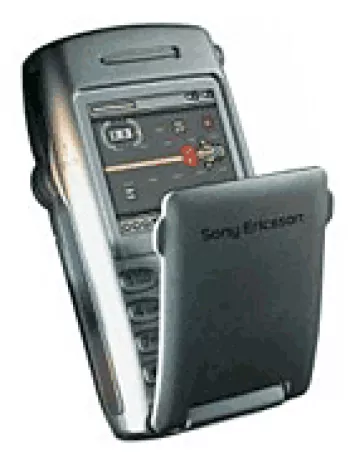Sony Ericsson K618 Specs Pricing & Performance Review

Overview of the Sony Ericsson K618
The Sony Ericsson K618 is a feature phone that was announced in August 2006 and has since been discontinued. Despite its age, the K618 is noteworthy for its compact design and decent features for a phone of its time. It offers a blend of communication capabilities and multimedia functions that appealed to consumers in the mid-2000s.
Design and Build
The Sony Ericsson K618 features a compact and lightweight design, with dimensions of 102 x 45.2 x 16.9 mm and a weight of just 89 grams. This made it incredibly portable and easy to hold, fitting comfortably into pockets and small bags. The phone was available in two colors: Vibrant Black and Bright White, catering to users who preferred a more classic or clean look. The body of the phone is structured to accommodate a Mini-SIM, aligning with the standard of the time.
Display
The K618 is equipped with a 1.9-inch TFT display, capable of showing 256K colors. The screen resolution is 176 x 220 pixels, with an approximate pixel density of 148 ppi. While the color depth and resolution are modest by today’s standards, they were adequate for displaying messages, menus, and media on a small screen size at the time of the phone's release.
Camera Capabilities
This device features a 2 MP main camera, which was quite common for mobile phones during its release period. The camera also supports QCIF video recording. For users interested in video calls, the K618 includes a VGA front-facing camera, enabling basic video calling functionalities. Although the camera features are basic compared to modern smartphones, they provided substantial functionality for personal photography and communication in its era.
Network and Connectivity
The K618 supports GSM and UMTS technology, making it compatible with 2G and 3G networks. It operates on GSM bands 900, 1800, and 1900, as well as UMTS 2100 for 3G connectivity, offering speeds of up to 384 kbps. It includes Bluetooth 2.0 with A2DP for wireless audio streaming, although it lacks WLAN capabilities. Users could connect the phone to a computer using the USB 2.0 interface for data transfer.
Memory and Storage
Internally, the Sony Ericsson K618 houses 16MB of storage, which could be expanded using a Memory Stick Micro (M2) card, supporting up to 2GB. This provided users with additional space for storing contacts, messages, photos, and applications. The phonebook supported photo call features, and call records included logs for the last 30 received, dialed, and missed calls.
Battery Performance
The phone is powered by a removable Li-Ion battery, allowing for user replacement if necessary. Officially, the battery life supports up to 350 hours of standby on both 2G and 3G networks, with a talk time of up to 7 hours on 2G and 2.5 hours on 3G. This was quite impressive for its time, allowing users to stay connected and make calls over extended periods without frequent recharging.
Operating System and Interface
Running on a feature phone platform, the K618 was designed with simplicity and ease of use in mind. Users interacted with the phone’s functions through physical buttons and a basic menu interface. It supported a variety of messaging services, including SMS, EMS, MMS, email, and instant messaging, making it versatile for different communication preferences.
Multimedia and Entertainment
The K618 supports MP3 and AAC ringtones, and it has a built-in loudspeaker. While it lacks a 3.5mm headphone jack, its Bluetooth capability allows for wireless audio streaming. The phone supports Java MIDP 2.0, enabling users to download and enjoy games and applications, which were a form of entertainment on feature phones during that period.
Web Browsing and Online Features
With a WAP 2.0/xHTML browser and the ability to handle HTML (NetFront) and RSS feeds, the K618 provides basic internet and online content viewing capabilities. While not as robust as modern smartphones, these features allowed users to access web content and stay informed through RSS and basic browsing over mobile data.
Pricing and Market Position
At launch, the Sony Ericsson K618 was priced at approximately 110 EUR, placing it in a competitive segment within the feature phone market. Its balance of design, multimedia capabilities, and network support made it an attractive choice for users seeking an affordable but functional mobile device.
Conclusion
The Sony Ericsson K618 represents an era of mobile phones where functionality met simplicity, providing essential features for communication and multimedia. While it may not compete with modern smartphones, it served its purpose well in the mid-2000s, delivering a solid mobile experience with reliable performance and a user-friendly interface.
Key Features of Sony Ericsson K618
- Supports GSM/UMTS connectivity
- Compact dimensions: 102 x 45.2 x 16.9 mm
- Lightweight design: 89 g
- TFT display with 256K colors
- Expandable memory with Memory Stick Micro (M2) up to 2 GB
- Main camera: 2 MP
- VGA videocall camera for selfies
- Bluetooth 2.0 with A2DP
- Supports various messaging options: SMS, EMS, MMS, Email, Instant Messaging
- Removable Li-Ion battery
- Stand-by time up to 350 hours (2G/3G)
- Talk time up to 7 hours (2G) and 2 hours 30 minutes (3G)
- Available in Vibrant Black and Bright White
Disadvantages of Sony Ericsson K618
- No WLAN support
- No GPS positioning available
- Lacks radio functionality
- Screen size is relatively small at 1.9 inches
- Low screen resolution with 176 x 220 pixels
- Internal memory is limited to 16MB
- Maximum expandable memory is only up to 2GB with Memory Stick Micro (M2)
- Selfie camera is limited to a VGA resolution
- Main camera video recording is limited to QCIF quality
- No 3.5mm headphone jack
- Lacks modern sensor technologies
- 3G talk time is limited to 2 hours and 30 minutes
- Outdated and discontinued model


View Also
More Phones
All Rights Reserved +13924 Phones © Mobilawy 2025

























